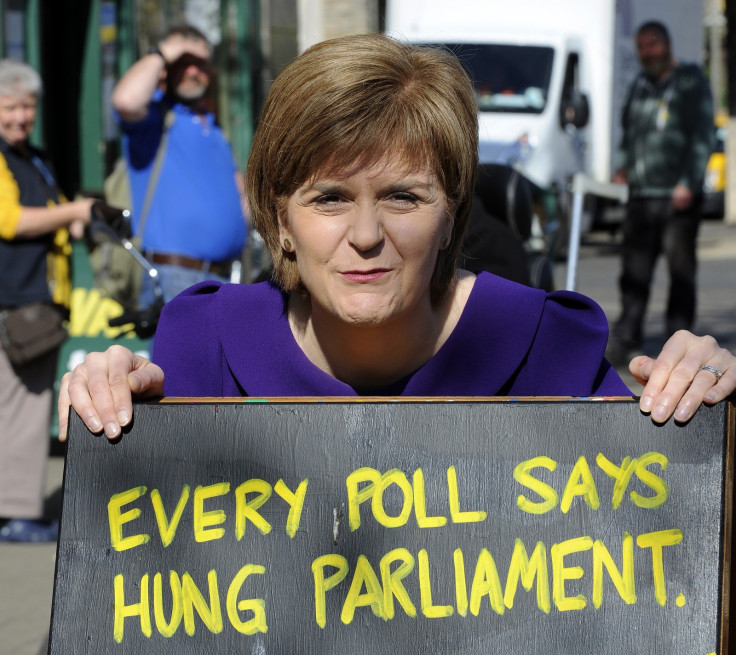Election 2015: Gap between SNP anti-austerity spin and Nicola Sturgeon spending plans says IFS

Nicola Sturgeon and the SNP have been dealt a pre-election blow after an independent body found the nationalist party would oversee a longer period of austerity than its rivals if it gains power.
The Institute for Fiscal Studies (IFS) explained the party's manifesto would mean an SNP government would make the same reductions to public expenditure over the next parliament as Labour.
The cuts would come at a slower pace than Ed Miliband's party and the Liberal Democrats but the SNP would therefore oversee a longer period austerity.
"The SNP's fiscal numbers imply the same reduction in borrowing over the next parliament as Labour, although the reduction in borrowing under their plans would be slower. While their plans imply a slower pace of austerity than those of the other three parties, they imply a longer period of austerity," the IFS said.
The organisation also projected Sturgeon's party would spend less in real terms than Labour or the Liberal Democrats at the end of the next parliament in 2020.
The IFS explained Labour is set to spend £790bn ($1,185bn) and the Liberal Democrats would spend £780bn in five years, whereas the SNP would spend £776bn.
The figures will leave Sturgeon red faced after the first minister called for an "anti-austerity alliance" between Labour and the SNP in the House of Commons after the general election.
The study also warned that voters have been "left in the dark" as to the scale and composition of cuts and tax rises by the parties after the election.
The IFS said the Tories are planning the largest reduction in borrowing over the next parliament, of 5.2% of national income, to eliminate the UK's current £87.3bn spending deficit by 2018-19.
The body said Labour had been "considerably more vague" about how much it would want to borrow. "They have pledged to 'get a surplus on the current budget' without specifying either exactly when or how much of a surplus," the IFS said.
"This pledge could be consistent with any reduction in borrowing totalling 3.6% of national income or more [given the coalition government's investment plans]. A reduction in borrowing of 3.6% of national income would require little in the way of spending cuts or tax increases after this year."
In addition, the IFS said the Liberal Democrats have been "more transparent" about plans through to 2017-18.
The organisation said Nick Clegg's party is aiming for a "tightening that is larger than Labour's but smaller than the Conservatives', at 3.9% of national income".
© Copyright IBTimes 2025. All rights reserved.






















